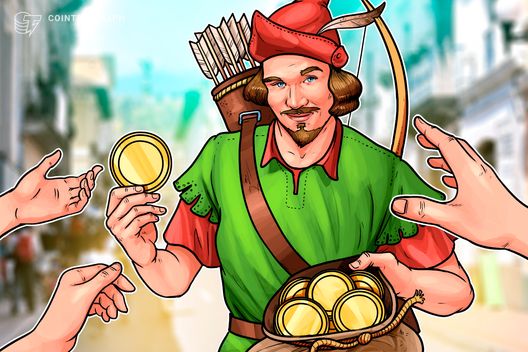

Robinhood is making waves in the financial world with its new tokenized equity platform, and private companies are lining up to participate, according to CEO Vlad Tenev. This initiative marks a significant step towards integrating traditional financial assets with decentralized finance (DeFi), potentially reshaping market liquidity dynamics.
The platform, known as Robinhood Chain, is an Ethereum-compatible layer-2 solution utilizing Arbitrum Orbit. It allows users to self-custody tokenized stocks and trade them using DeFi applications, signaling a shift from traditional finance to blockchain-based solutions. Robinhood's expansion into tokenized trading aims to leverage 24/7 trading capabilities and increased market accessibility, providing traders access to major U.S. stocks through DeFi platforms.
At an event in Cannes on June 30, Robinhood announced its intent to become a key player in crypto-based financial infrastructure. The company is launching tokenized versions of U.S. stocks and ETFs for its European users, starting with 200 names and aiming to exceed 2,000 by year-end. Initially issued on Arbitrum, these tokens will eventually migrate to Robinhood's own permissionless blockchain, also based on Arbitrum. This proprietary protocol will allow Robinhood to capture transaction fees, similar to Coinbase's layer-2 network, Base.
Robinhood will also provide access to tokenized shares of private companies like OpenAI and SpaceX, facilitating the transferability of traditionally illiquid securities. This move complements its recent acquisition of Bitstamp and the upcoming launch of crypto perpetual futures, solidifying Robinhood's evolution from a retail stockbroker into an all-in-one digital asset platform.
Tokenization involves converting real-world assets, such as stocks, into digital tokens on a blockchain. These tokens mirror the underlying asset's value and can be traded on-chain. Investors in Robinhood's tokenized shares will receive economic exposure (price movements, dividends) to the real stocks, typically without voting rights.
Robinhood's tokenization strategy aims to challenge traditional market hours by offering 24/5 trading, allowing users to access tokenized versions of stocks outside of standard U.S. market hours. This shift effectively decouples trading activity from centralized exchanges and legacy infrastructure. Bitwise CIO Matt Hougan described this development as indicative of a larger industry transition, calling current market hours outdated in the context of today's digital economy.
However, Robinhood's foray into tokenized equities has faced scrutiny. The Bank of Lithuania, which supervises Robinhood's operations in the EU, has raised questions about the structure and compliance of the new product. OpenAI has also distanced itself from the offering, clarifying that the tokens do not represent actual equity ownership in the company.
Despite these challenges, Robinhood's move into tokenized stock trading represents a significant step towards integrating blockchain technology with traditional financial markets. By offering 24/5 trading and the potential for 24/7 access, Robinhood aims to provide a more flexible and programmable trading experience. This initiative could attract more traders to blockchain-based platforms, potentially reshaping the landscape of traditional financial exchanges.
The programmability of tokenized assets opens up new possibilities, such as using tokenized stocks as collateral in DeFi protocols or automating dividends, features that traditional equities cannot match. As tokenized investing becomes a tangible reality, the lines between centralized brokerages and decentralized protocols are blurring, setting a high bar for the next generation of financial platforms.